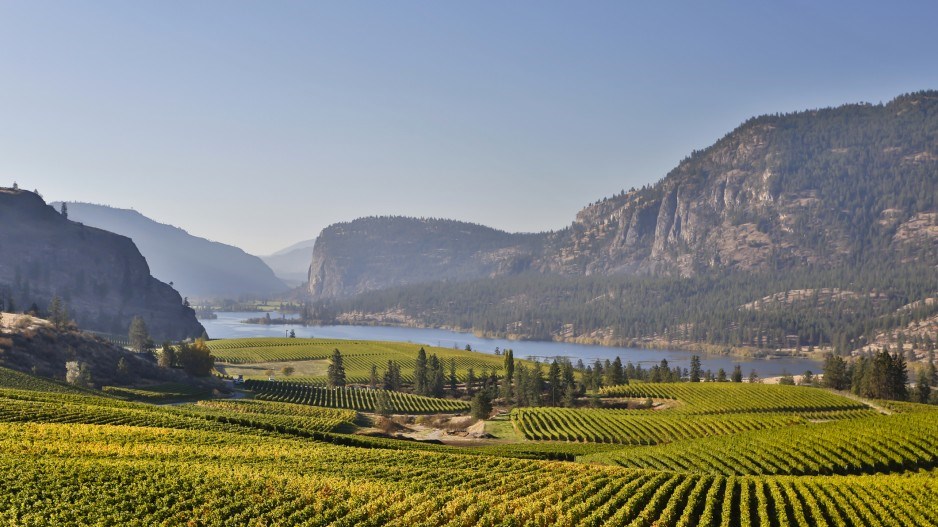It took a Vancouver Canucks playoff hockey game, of all things, to begin to uncork the persistent dispute between British Columbia and Alberta over cross-border wine sales, which ultimately led to an agreement Tuesday.
The origins of the deal go back to May 11, when Alberta Premier Danielle Smith invited B.C. Premier David Eby to watch game two of the Canucks-Oilers playoff series in a private box at Rogers Arena in Vancouver.
The hope was, during a break in the action, the two premiers might start to find some common ground over what was, at that point, a four-month ban by Alberta on B.C. wineries that had been selling cases of wine directly to Alberta consumers and bypassing Alberta provincial taxes.
“We indicated to Alberta that if we had a chance, we wanted to talk about that,” Eby said in an interview Tuesday.
“And so it was between the second and third period we sat down.”
The move marked a thaw in relations between the two provinces on the issue.
For months, B.C. Solicitor General Mike Farnworth and Service Alberta Minister Dale Nally had been at loggerheads and going nowhere fast on a settlement.
B.C. was offering to have the wineries self-collect the $3.19 per bottle tax on direct-to-consumer wine shipments — which up until this point they had not been paying — but Alberta did not have a mechanism to accept payment and refused to go to the trouble of creating one unless B.C. opened up more space on its liquor store shelves for Alberta beer.
“The ministers were a bit stuck,” said Eby. “So I brought it to the premier’s office.”
After the Canucks game, Smith took the issue back to her cabinet colleagues.
The agreement struck Tuesday saw Alberta back down from its beer demands. Instead, it agreed to create a “virtual warehouse” to accept tax payments from B.C. wineries who ship directly to Alberta customers through things like wine clubs and wine subscription services.
“There are a lot of Albertans who love B.C. wine,” said Smith.
“So we were hearing that they wanted to have a solution. And we also heard directly from the vineyards who are really struggling with especially some of the weather issues that they face.
“We don't want to harm either our customers and we don't want to harm the vineyards as well. So we felt it was important for us to get to an agreement so that the shipments can flow again.”
It’s a small bit of relief for B.C. wineries, which are facing the disastrous loss of most of their grapes and vineyards in the Okanagan and Interior following a severe cold snap earlier this year.
The B.C. government has offered a $70-million aid package to help replace damaged crops, on top of federal agricultural support, but fruit growers have said it’s not enough to help with farms and vineyards stay open this season.
Eby hinted Tuesday at preparing additional aid for the sector. But in the meantime, he thanked Alberta for agreeing to immediately allow cross-border B.C. wine shipments to resume, even before the two provinces had hashed out the details of the tax changes.
“I'm grateful for Alberta addressing this as quickly as they did,” he said.
“We are working closely with the wine sector to support them in being able to really persevere through this challenging period, where the vines are dead in significant [portions] at many different wineries, so that they live through that replant and regrowth to get back on track.”
The new deal is mostly positive for British Columbia — even if the playoff series that inspired it ultimately resulted in an Edmonton victory in seven games and cost Eby a bet he’d made to don an Oilers jersey with his name on it. Perhaps that even helped the deal.
“I can't swear it's related to me putting on that Oilers jersey,” said Eby. “But I can assure you that it probably didn't hurt.”
Rob Shaw has spent more than 15 years covering B.C. politics, now reporting for CHEK News and writing for Glacier Media. He is the co-author of the national bestselling book A Matter of Confidence, host of the weekly podcast Political Capital, and a regular guest on CBC Radio.





